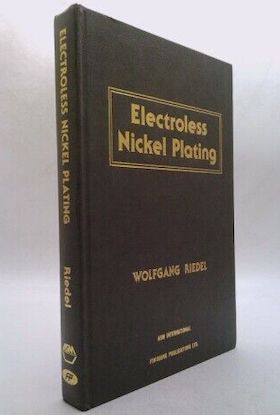
-----
Alternatives to electroless nickel?
Dear Sirs:
I am looking for information on electroless (Ni/P, Ni/B) plating and electrolytic Ni plating. The specific application of these processes are to coat solder ball land sites of BGA semiconductor packages.
I would greatly appreciate any help in getting a better understanding differences and problems seen with these plating processes. Thanks.
- San Jose, California
2000
Electroless nickel plating is generally much more expensive than electrolytic plating, but offers better corrosion resistance, greater hardness, and far more uniform thickness of deposit. It is probably more appropriate for your application.
Nickel boron plating offers low resistance and is best for electronic applications. However, it is more expensive than nickel phosphorous, and improvements have been made in nickel phosphorous plating, offering deposits of low, mid, or high phos. Today low phos electroless nickel is probably more popular than nickel boron electroless plating.

Ted Mooney, P.E.
Striving to live Aloha
finishing.com - Pine Beach, New Jersey
Ted can be retained for immediate
answers or long term project help
I am in search of an alternative for electroless nickel for a chemically resistant, low friction, high resistance to wear, electrically conductive sliding surface application. The design is basically part of a sliding seal and needs to shield electromagnetic interference. Except for the high hardness and low friction, the as plated electroless nickel works fine. To increase hardness, the part was heat treated which lowered the corrosion resistance to an unacceptable level for the application. I am looking for a replacement:
parent material: 304 stainless steel
chemicals: low concentration acids (nitric, HCl, sulfuric)
low friction, high hardness: similar to HT nickel or harder
good electrical conductivity: similar to/better than nickel
engineer - Shelton, Connecticut, USA
February 18, 2011
Have you considered low Phos EN or boron EN? Both have higher as-plated hardness, though are less corrosion resistant. Perhaps their performance could exceed that of heat treated EN in your particular application. There are other options that are hard and corrosion resistant, like rhodium or PVD's, but could be as expensive or even more.
G. Marrufo-Monterrey, Mexico
Monterrey, NL, Mexico
First of two simultaneous responses -- February 26, 2011
Rhodium fits the bill but is expensive.

Jeffrey Holmes, CEF
Spartanburg, South Carolina
Second of two simultaneous responses -- February 26, 2011
Nitric will eventually attack EN. HCl will eventually attack chrome. How fast depends on the product and the concentration. A mixed acid will be far worse than a single acid.
The untreated EN and in particular the boron or low P with a thin top coat of Rhodium should fit the bill just fine.
The problem will be finding a shop that can do both of them in quick sequence so that there will not be any activation of the EN required.
- Navarre, Florida
First of two simultaneous responses -- February 28, 2011
We have priced out Rhodium and it may not fit the budget for the application. Can anyone comment on hard chrome plating for the application? In comparison to EN, who does it stack up for corrosion to acids, electrical properties, hardness, friction?
thanks
- Shelton, Connecticut
Second of two simultaneous responses -- March 1, 2011
Hai All,
For EN Plating replacement is there. That is Wood's nickel strike then Sulphamate Nickel. It will give desired result. I hope it will be better.
Karthikeyan
- Coimbatore, TamilNadu, India
March 9, 2011
Rereading all of the comments, I think that boron EN should fit your bill-without heat treatment.
Another option might be to have it plated with a nickel that has sodium tungstanate added for a significant increase in hardness without heat treat. This normally would be an electrolytic nickel, so will have thickness distribution problems as well as a lower chemical resistance than the boron en.
- Navarre, Florida
March 9, 2011
I believe that high phosphorus electroless nickel would work because of the better lubricity, and superior corrosion resistance. Hardness is not always the best way Hi-P EN is less hard that other proposed answer.

Don Baudrand
Consultant - Poulsbo, Washington
(Don is co-author of "Plating on Plastics" [on Amazon or AbeBooks affil links]
and "Plating ABS Plastics" [on Amazon or eBay or AbeBooks affil links])
March 11, 2011
Q, A, or Comment on THIS thread -or- Start a NEW Thread

